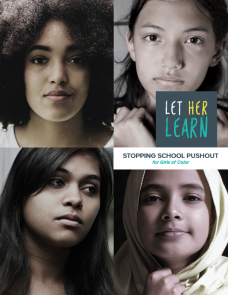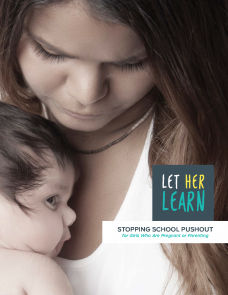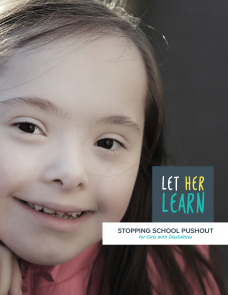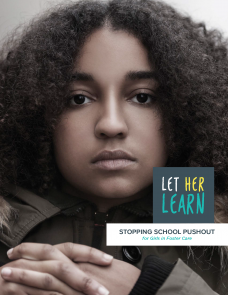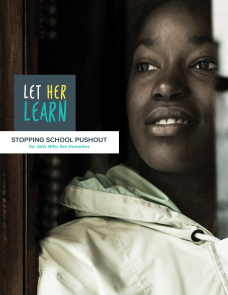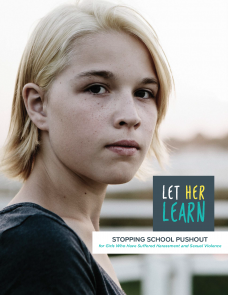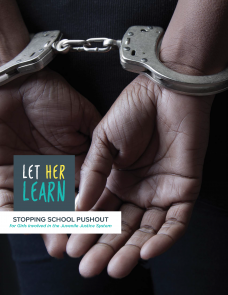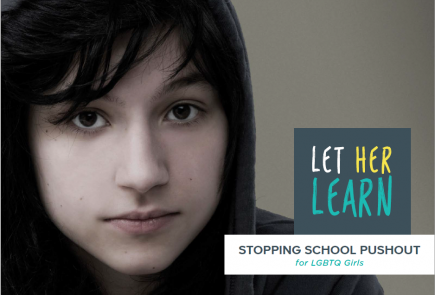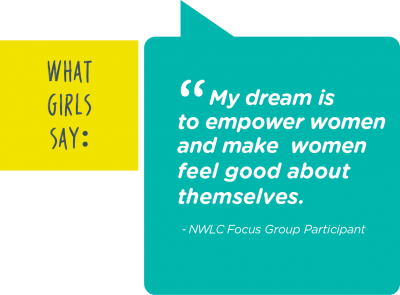Abortion rights, women of color, and LGBTQIA+ people are under attack. Pledge to join us in fighting for gender justice.
Four Ways Policymakers Can Let Her Learn
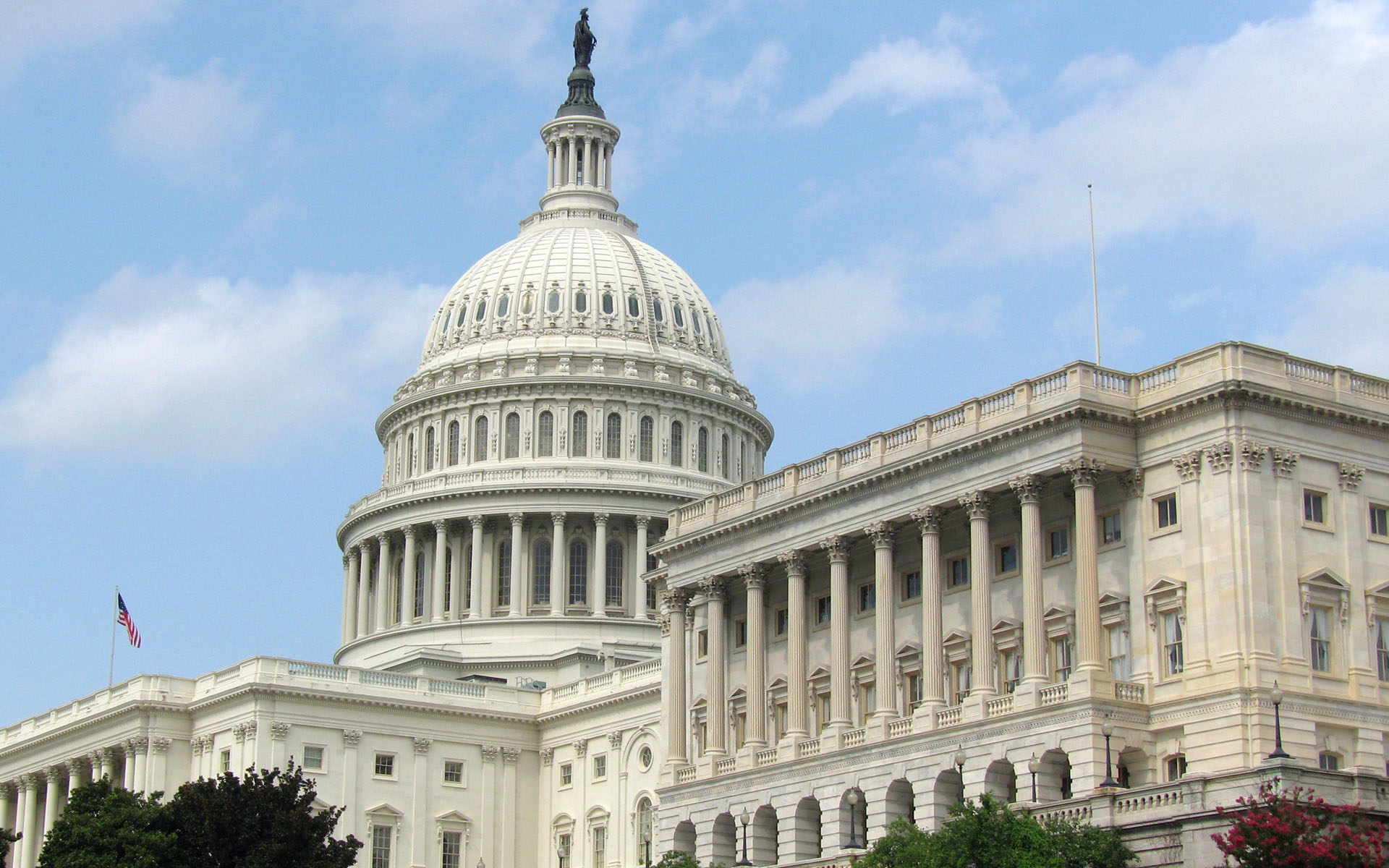
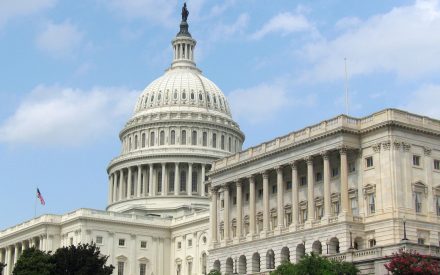 Policymakers may not see students everyday, but if you’re directly involved with the drafting and passing of legislation at the local, state, or federal level, your actions can be make-or-break for some of your youngest constituents: school-aged girls. If you are, or work for, a policymaker, please read on for four ways you can get started on reversing the devastating trends highlighted in the National Women’s Law Center’s Let Her Learn reports.
Policymakers may not see students everyday, but if you’re directly involved with the drafting and passing of legislation at the local, state, or federal level, your actions can be make-or-break for some of your youngest constituents: school-aged girls. If you are, or work for, a policymaker, please read on for four ways you can get started on reversing the devastating trends highlighted in the National Women’s Law Center’s Let Her Learn reports.
Fund schools and communities. As our reports show, girls in America’s classrooms are struggling with a whole lot more than homework. Staggering numbers of young girls are healing from myriad traumatic experiences, including family separation, homelessness, sexual harassment and violence, and more. But educators can’t simultaneously teach and be nurses, psychologists, case workers, and social workers, too. Educators and students alike need trained professionals who offer those services in schools so they can focus on their main jobs: teaching and learning. Educators also need ongoing professional development and support to stay up to date with the best available knowledge of how to help diverse groups of students succeed. All of that takes resources, which many schools have too little of these days.
When it comes time to draft budgets and raise revenue to fund them, do everything in your power to give schools the resources they need to support student success and ensure that those resources are used in a fair way to support girls as well as other students. Explore new revenue sources that can fund education, including asking more of society’s wealthiest individuals and corporations, so communities can have what they need to give students the schools they deserve. Likewise, support policies that promote economic opportunity and well-being for families and reduce the poverty and inequality that lies at the root of many of these overlapping issues.
Protect school data and information-sharing. Whether it’s creating streamlined systems that allow districts to share enrollment information for students (especially helpful for students who move around a lot because they are in foster care or are struggling with homelessness), or collecting and sharing solid demographic information so everyone can see how schools are doing by as many subgroups of students as possible (such as girls of color or girls with disabilities or girls of color with disabilities), how public systems collect and share information makes a difference at all levels. Support systems that make it easier for families to enroll and/or transfer students. And continue collecting data on important indicators like discipline rates, incidents of harassment, and other student outcomes by subgroups (e.g., race, gender, ability status, sexual orientation, gender identity), so educators and communities can see which students are being well-served at school, and where schools and districts need to improve.
Oppose the criminalization of youth and poverty. Status offenses like truancy may be intended to keep kids in school, but often their only practical effect is to make it even harder for some kids — especially girls who are dealing with trauma, girls in foster care, and girls who are homeless — to return to school and stay there. Instead, many girls are detained for status offenses, which can lead to a cycle of involvement with the juvenile justice system. The same goes for policies that allow schools to fine and/or exclude students and families for things like uniform violations, tardiness, or other small infractions, threatening their educations over problems related to living in poverty.
For the most part, girls and their families aren’t refusing to comply with these policies because they’re inherently bad or lazy. They’re out of compliance because they have problems they can’t afford to solve (like permanent housing, or new clothes to comply with uniform dress codes), or that they don’t know how to deal with (like trauma). Oppose policies that unfairly push vulnerable girls and families into the criminal justice system, and choose to devote those resources to programs that connect girls with counseling, credit recovery programs, and other supports that can help them get back on track at school.
Similarly, girls who are homeless, or whose poverty, trauma, and other life circumstances make them vulnerable to sex trafficking and other predatory behavior by adults shouldn’t be arrested (and further traumatized) for their own abuse and exploitation. Support safe harbor laws and programs that connect exploited youth with the resources they need to heal and succeed in school and life.
Pledge to Let Her Learn. Have these conversations in your community and with your colleagues in government. Meet with and listen to local and national organizations and campaigns that stand up with and for girls. Take the Let Her Learn pledge, and be a champion for vulnerable girls in your city, state, and our country as a whole.
For more detailed recommendations on how you can help various groups of girls, read the recommendations in each of our reports on stopping school pushout for:
